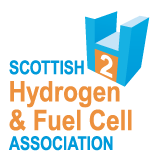4th Energy Wave has released their 2017 Fuel Cell and Hydrogen Annual Review, a free resource for the industry and interested stakeholders. It is downloaded and accessed annually by over 10,000 users around the world, regularly quoted and the data reused and leveraged by a range of organisations.
The 2017 Fuel Cell and Hydrogen Annual Review is the continuation of the Fuel Cell Annual Review report from Fuel Cell Today, started by Dr Kerry-Ann Adamson and her team in 2007. The dataset combines both historical data from FCT and fresh data, collected and collated by 4th Energy Wave. This year’s special 10th Anniversary Edition presents for the first time one of a range of scenarios developed by 4th energy Wave on the emerging fuel cell and hydrogen sectors.
The Review identifies that the main drivers for the switch to, and adoption of, fuel cell technology and hydrogen fuel continue to be Decarbonisation, Emissions Reduction, Electrification, Resilience, and Reduced Water Consumption. The 2017 Review also highlights the Increased emphasis that is now placed on criteria emissions reduction in the urban environment, and the steps now being taken by multiple cities and regions to eliminate the harmful effects of petrol and diesel cars on health.
The 2017 Review introduces 4th Energy Wave’s new Adopter Readiness Level (ARL) as an assessment of market readiness for a new product. Covering a number of different factors and pain points the ARL focuses fully on market pull, providing complementary insights to the more commonly used Technology Readiness Levels (TRLs). The use of ARL metrics may help to avoid situations where companies come to market with a HFC technology, but find a lack of customer demand.
The Review includes analysis for market size and forecasts covering key stationary and transport H&FC sectors. At the SHFCA 2017 conference in Glasgow Kerry-Ann highlighted the recent growth in electrolyser deployments as being much faster than predicted. 4th Energy Wave is therefore tracking the development of the electrolyser market. With increased interest in electrolysis, especially using renewable energy, to produce zero carbon fuel, deployments of electrolysers are jumping year on year.
The 2017 Review also includes special sections which provide further key insights, including one on Fuel Cell Cars and Battery Electric Cars (Range, Cost, Infrastructure, Critical Resources).
The Review contains fresh analysis and many key insights, well worth downloading for a light read…
